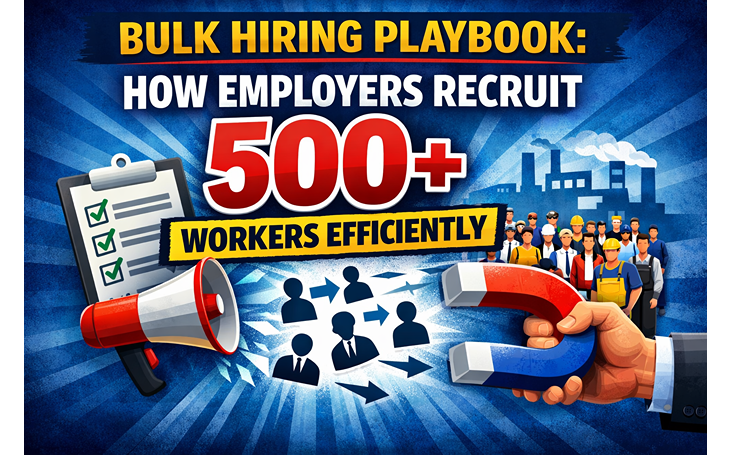10 Factors To Consider For Outsourcing Decisions
10 Factors To Consider For Outsourcing Decisions
What is an outsourcing decision?
An outsourcing decision is when a company chooses to hire external organizations or professionals to manage specific business tasks or services, instead of handling them internally.
This strategic decision is often driven by the desire to reduce costs, access specialized expertise, focus on core business functions, and improve efficiency. It involves evaluating potential benefits and risks, considering the impact on current operations, and carefully selecting the right outsourcing partner. This approach can significantly affect a company's operational dynamics and competitiveness.
Why are outsourcing decisions important?
Outsourcing decisions are crucial for businesses because they can lead to significant cost savings, access to specialized skills and technology, increased efficiency, and the ability to focus on core business functions. Making the right outsourcing decision can also provide a competitive advantage by allowing companies to adapt quickly to market changes and scale operations effectively. However, it requires careful assessment of potential risks and benefits, understanding the impact on company culture and employee morale, and ensuring alignment with the company's overall strategic goals.
Outsourcing decision Matrix for you to decide better
What are the factors influencing outsourcing decision?
Outsourcing is a strategic decision that can significantly impact a business's efficiency and success. Understanding the key factors involved is crucial for making informed decisions. This section explores the essential considerations in the outsourcing process. Let’s take a look at some of the factors to consider when making outsourcing decisions for your business.
1) Cost Savings
When you talk in pure business terms, outsourcing needs to improve your business bottom lines through reduced operational costs. If you don’t see this happening anywhere in the near future, chances are that you’ll end up spending more than you end up saving. You don’t need to be an expert analyst to figure out where you’re headed. All you've got to see is whether outsourcing will help you reduce a significant amount of your capital spent on hiring employee and equipment. At the same time, you will also need to maintain a balance between the quality and quantity of the services provided by the outsourced employees/firm. For instance, if you outsource accounting, see if doing it yourself costs more than outsourcing.
2) Pricing
We already discussed how cost-cuttings by hiring talent in a low price tag is one of the most common reasons why companies outsource. You’ll find several vendors offering their resources at a competitive price. However, instead of going for the cheapest vendor, compare and find out what are you going to get from other vendors as well. For instance, some vendors will also offer customer support at no extra charge, which is a great deal in itself. Just remember that although price is an important factor, it should not be the ONLY factor that helps you zero-in on a vendor.
3) The Resources and Technology
Technology and resources are two considerations that are essential when you choose to outsource. Ask the vendor about the tools and technologies they are going to use for your project and how capable are they of handling all your outsourcing needs? What about the resources? Are they well trained for the assignments? Does the vendor have an office with up-to-date systems and can handle the most rigorous of the outsourcing functions? Answers to questions like these will lead you to select the appropriate vendor who has the best resources and updated technology for seamless handling of your business functions.
4) The Ability To Meet Deadlines
Timeliness in outsourcing is as important as the costs. For instance, if a vendor fails to meet the deadlines, it can lead to major bottlenecks. That alone will nullify any cost-saving benefits that you had anticipated while hiring them. You need to ensure that the vendor adheres to the promised quality and timeliness. One of the ways to do this is by making all your queries beforehand. If you find that the vendor has few quality control measures or does not have any backup plan should they miss a deadline, it is better not to hire them in the first place.
5) Minimal Supervision
When you hire an outsourcing vendor to work on your business requirements, it’s a given that they are going to take care of everything from scratch. There should be no room for sloppy or shoddy work and they should be able to produce the results. Choosing a responsible vendor who will be in charge of the projects is a must-have so that you only need to supervise them minimally and let them take it from there.
This will give you more time to focus on your core business functions.
6) Limit The Liabilities
More often than not, there are certain functional areas that can build up liabilities for a business. This eats up time and money, which can be spent elsewhere. You can cleverly outsource certain functions to reduce the liabilities to some extent.
7) Trustworthiness
Before you sign on the dotted line, do make it a point to visit the vendor’s site. Apart from this, also do research on the internet to find more about the firm, the infrastructure, safety practices and the team that works there. This will help you assess the reliability of the service providers. If you have a reference who’ve worked with a vendor in the past, you can also ask them about the firm. This takes us to the next point.
8) Who’ll Lead The Team?
You can’t just have blind faith in the outsourcing team, even if you’re saving significantly by hiring them. Find out all that you can, including the team members who’ll be working on the projects and who’ll lead that team. Learning these facts upfront will save you from several agonies at a later stage. Moreover, when you know that your business functions are in capable hands, you’ll be at peace.
9) The Service Level Agreement
The SLA (Service Level Agreement) is one of the most crucial documents when we talk about outsourcing partnerships. At the time of creating the document, make it a point to ensure that every single detail is written clearly. This will help you avoid any kind of confusion or ambiguity, especially about the quality of the services you’ll be getting. It also makes sense to hire a lawyer, especially to manage your outsourcing endeavor, so that you don’t end up in any legal trouble.
10) Communication
Communication is the key, whether you’re working onshore or with an offshore team. The vendors should be able to handle your queries and promptly reply without making you wait indefinitely. Their communication skills need to be spot-on without any space for cultural or other communication barriers. This ensures that they have clearly understood your requirements and can address any issue that may crop up.






